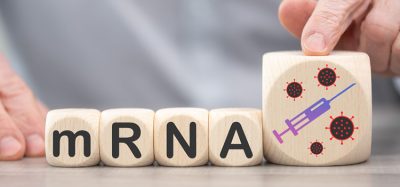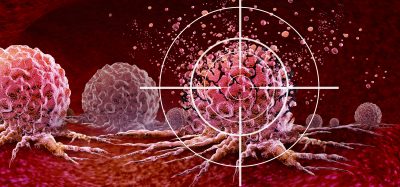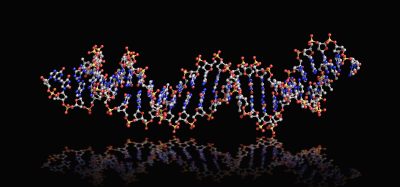New genetic mechanism could lead to RNA therapies for mental health
Posted: 9 January 2025 | Drug Target Review | No comments yet
Researchers at the Medical University of South Carolina have discovered a key genetic mechanism that could lead to RNA-based therapies for psychiatric disorders triggered by emotional experiences.


Researchers at the Medical University of South Carolina (MUSC) have discovered a crucial genetic mechanism that helps the brain adapt to emotional experiences, potentially opening the door for RNA-based therapies to treat psychiatric disorders. The discovery, published in Science, sheds light on the genetic processes that influence how emotional experiences can lead to lasting changes in behaviour, which can become problematic in conditions such as depression or substance abuse.
The team, led by Dr Makoto Taniguchi, Dr Christopher Cowan, and Rose-Marie Akiki, focused their research on understanding how emotional experiences such as chronic stress and drug use result in changes in behaviour over time. Their findings suggest that a specific genetic structure, an RNA:DNA ‘sandwich’, plays a critical role in these adaptations.
“We hope to get better insights into how changes in the brain can lead to maladaptive changes in behaviour,” said Cowan. “We could also improve our fundamental understanding of how the brain works and how emotions and emotionally relevant experiences help to shape brain circuits.”
Reduce preclinical failures with smarter off-target profiling
24 September 2025 | 15:00PM BST | FREE Webinar
Join this webinar to hear from Dr Emilie Desfosses as she shares insights into how in vitro and in silico methods can support more informed, human-relevant safety decisions -especially as ethical and regulatory changes continue to reshape preclinical research.
What you’ll learn:
- Approaches for prioritizing follow-up studies and refining risk mitigation strategies
- How to interpret hit profiles from binding and functional assays
- Strategies for identifying organ systems at risk based on target activity modulation
- How to use visualization tools to assess safety margins and compare compound profiles
Register Now – It’s Free!
At the core of their discovery is a type of long non-coding RNA (lncRNA), known as long non-coding enhancer RNA (Inc-eRNA), which interacts with the regulatory region of genes to form structures called R-loops. These R-loops help control the activation of genes by bringing together key regions of a gene – the enhancer and promoter – enabling it to respond to external emotional stimuli.
The team focused on the gene NPAS4, which plays a role in stress-induced anhedonia (the inability to experience pleasure) and drug-induced relapse. Their study reveals the first evidence that R-loops are critical in regulating genes like NPAS4 in response to emotional experiences, offering new insights into how these experiences influence behaviour.
“By bringing the enhancer and promoter together in space and time, R-loops seem to be facilitating their interaction and driving the response to turn on a gene,” said Cowan.
The researchers used a preclinical model of mice to test their hypothesis. They found that blocking the formation of R-loops at the NPAS4 gene significantly reduced cocaine-seeking behaviour in the brain’s nucleus accumbens, and prevented stress-induced anhedonia when manipulated in the prefrontal cortex. These results suggest that R-loops at the NPAS4 gene are essential for the brain’s adaptation to emotional experiences, influencing behaviours linked to substance use and mood disorders. “You need a change in the genetic basis of how everything is working, what is being transcribed, what is being formed in the cell to form stronger neural circuits that underlie behaviour,” said Akiki.
The researchers also highlighted that these R-loops are highly conserved across species, pointing to their evolutionary importance. Their work suggests that R-loops might play a broader role in how neural circuits adapt to stimuli, similar to their function in the immune system, where they help develop immunity. “We found that neurons, like immune cells, can respond to a stimulus through the formation of an R-loop,” explained Akiki.
The team’s ultimate goal is to explore how widespread this genetic mechanism is across different brain regions, and whether disruptions to it could contribute to psychiatric disorders. “This is a new way of thinking about how genes can be turned on,” said Cowan.
This discovery not only enhances our understanding of the brain’s response to emotional experiences but also has the potential to inform the development of RNA-based therapies that could treat psychiatric disorders, offering hope for more targeted treatments in the future.
This study was published in Science.
Related topics
Drug Discovery, Drug Discovery Processes, Gene Therapy, Genomics, Neuroprotection, Neurosciences, RNAs
Related conditions
Anhedonia, Depression, Mood disorders, substance use disorders
Related organisations
Medical University of South Carolina (MUSC), National Institutes of Health (NIH), South Carolina Clinical & Translational Research Institute
Related people
Dr Christopher Cowan, Dr Makoto Taniguchi, Rose-Marie Akiki








